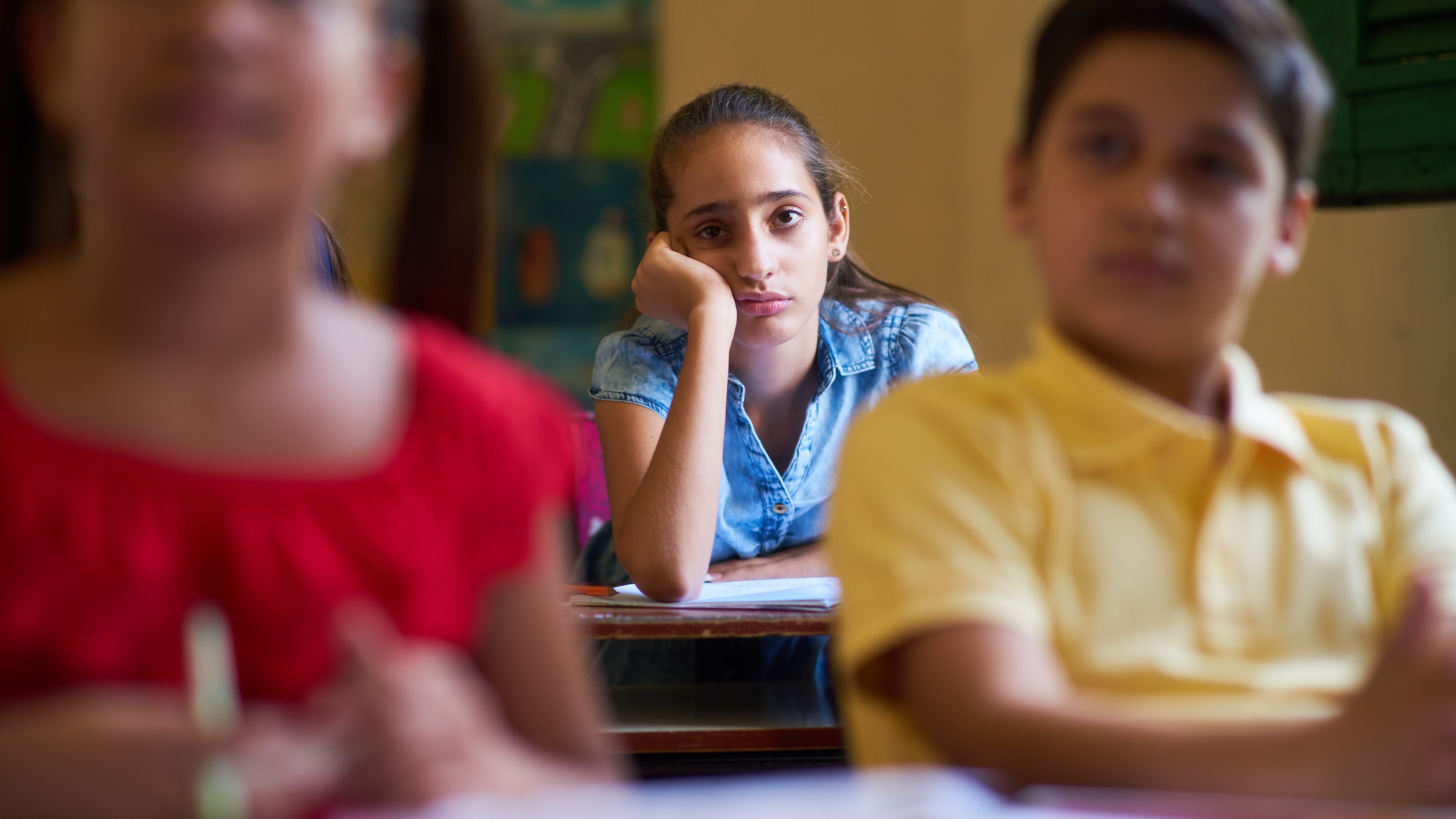Baylor Researchers Examine Relationship Between Imprisoned Mothers and Their Adolescent Children’s Risk Behaviors

Teenagers with imprisoned mothers are more likely to struggle with sleep.
Contact: Kelly Craine, Baylor University Media and Public Relations, 254-297-9065
Follow us on Twitter: @BaylorUMedia
WACO, Texas (June 23, 2023) – Women represent the fastest-growing population in U.S. institutional corrections facilities. In the past four decades, the number of women incarcerated has increased by more than 475%, rising from 26,326 in 1980 to 152,854 in 2020. Because the majority of imprisoned women are mothers, a conservative estimate indicates that at least one million American children have experienced maternal incarceration, and a substantial portion of them are adolescents.
Evidence suggests maternal incarceration is a risk factor for adolescents’ depression and withdrawal, as well as substance abuse and delinquency. However, little work has been done to understand how it affects sleep patterns, dietary behaviors and physical activity.
Because the detrimental effects related to sleep, diet and exercise can be modified, understanding the prevalence of these health risk behaviors is essential to disease prevention in adulthood.
Qianwei Zhao, Ph.D., assistant professor and co-director of the Baylor IMPACT Lab at the Diana R. Garland School of Social Work at Baylor University, led a team of researchers to study this issue. Their latest research – Examining the Association between Recent Maternal Incarceration and Adolescents’ Sleep Patterns, Dietary Behaviors, and Physical Activity Involvement – was published in April in Societies, an International, peer-reviewed and open-access journal of sociology.
METHOD
Zhao and the research team used a large national dataset – the Fragile Family and Child Wellbeing Study – to examine the prevalence of risk behaviors related to sleep, diet and physical exercise among adolescents with maternal incarceration histories and assess the relationship between maternal incarceration and these behavioral health risks.
“This project builds upon my previous work on the impact of maternal incarceration on adolescent health risk behaviors, which remains an area under-investigated,” Zhao said.
FINDINGS
Using that national dataset to explore The Baylor research found that:
- A significantly lower proportion of adolescents with maternal incarceration experiences ate breakfast at least four days a week than those without maternal incarceration experiences.
- A significantly higher proportion of them ate fast food for at least two days a week.
- A significantly higher proportion of them had at least two sweetened drinks per day.
- Adolescents with maternal incarceration experiences reported significantly more days having problems staying asleep per week.
- Adolescents with maternal incarceration experiences were significantly more likely to have problems staying asleep than those without maternal incarceration experiences.
IMPLICATIONS
According to Zhao, findings from this study will contribute to the growing literature on the consequences of maternal incarceration on adolescent health risk behaviors and may inform interventions to change their risky behaviors and improve population health.
“It is important to explore policies and programs that can reduce the impact of structural and systemic factors on adolescents with incarcerated mothers, thereby improving healthy youth development,” Zhao said.
While some prior programming has been developed to offer support groups and family skills training for these adolescents and their caregivers, the need continues for more programming focused on diet, exercise and sleep.
For example, additional support for these families might come in the form of nutrition education, access to healthy food through existing school programs, including breakfast during the school year and summer months, case management that links these families to counseling services, food banks or other local nutrition programs, and additional accessible opportunities to become involved in sports or other physical activities.
“It is essential that researchers, scholars and community members advocate for policy changes to fund such programs, given the increasing prevalence of maternal incarceration among adolescents in the U.S.,” Zhao said.
ABOUT THE AUTHORS
Qianwei Zhao, Ph.D., assistant professor and co-director of the Baylor IMPACT Lab at the Diana R. Garland School of Social Work at Baylor University
Ning He, MSW, Silver School of Social Work, New York University
Flor Avellaneda, Ph.D., MSW, postdoctoral research associate at the Diana R. Garland School of Social Work at Baylor University
Danielle E. Parrish, Ph.D., professor and director of Baylor IMPACT Lab at the Diana R. Garland School of Social Work at Baylor University
ABOUT BAYLOR UNIVERSITY
Baylor University is a private Christian University and a nationally ranked Research 1 institution. The University provides a vibrant campus community for more than 20,000 students by blending interdisciplinary research with an international reputation for educational excellence and a faculty commitment to teaching and scholarship. Chartered in 1845 by the Republic of Texas through the efforts of Baptist pioneers, Baylor is the oldest continually operating University in Texas. Located in Waco, Baylor welcomes students from all 50 states and more than 100 countries to study a broad range of degrees among its 12 nationally recognized academic divisions.
ABOUT THE DIANA R. GARLAND SCHOOL OF SOCIAL WORK AT BAYLOR UNIVERSITY
Baylor University’s Diana R. Garland School of Social Work is home to one of the leading graduate social work programs in the nation with a research agenda that explores humanity, engages spirituality and promotes equality. Upholding its mission of preparing social workers in a Christian context for worldwide service and leadership, the School offers a baccalaureate degree (BSW); a Master of Social Work (MSW) degree available in Waco or online; three joint-degree options, MSW/MBA, MSW/MDiv and MSW/MTS, through a partnership with Baylor’s Hankamer School of Business and George W. Truett Theological Seminary; and an online Ph.D. program. Visit the School of Social Work website to learn more.
